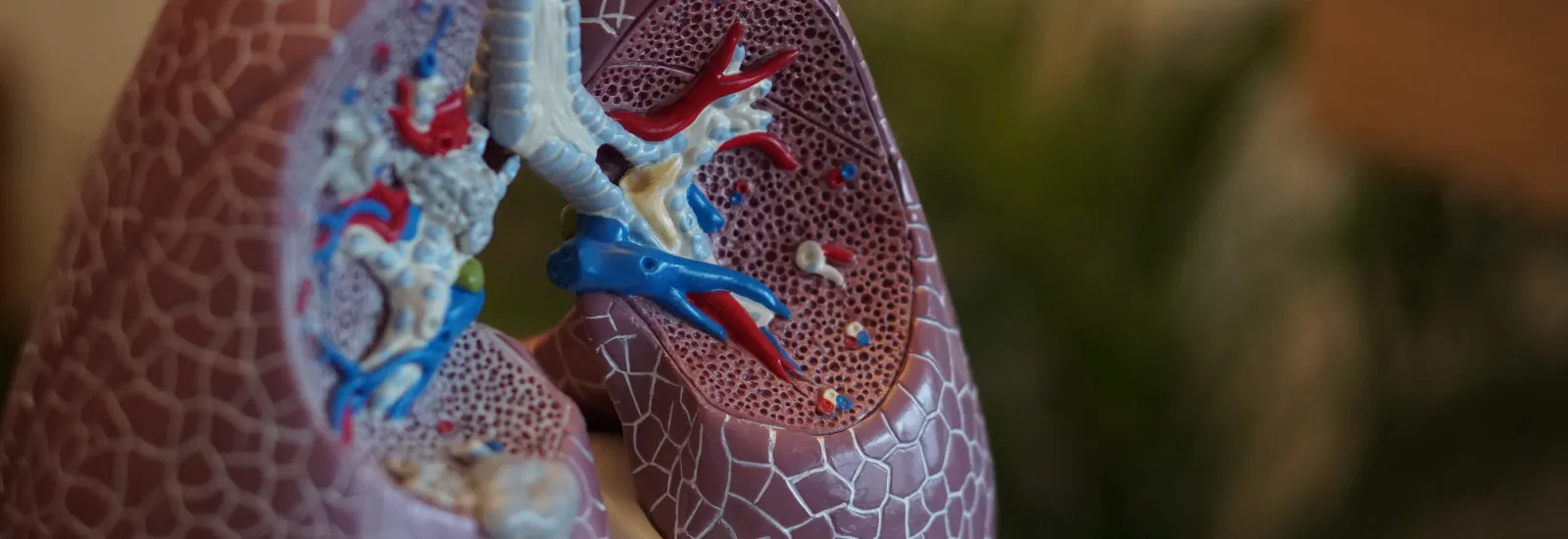
Low- dose CT scans can find lung cancer early
3-minute read
Did you know a quick, pain-free imaging scan can help health
clinicians find lung cancer before it causes symptoms? Low-dose CT scans are giving
patients with lung cancer a valuable head start on treatment and a chance to
live longer.
Cancer
technology is constantly evolving. Some of the most important innovations
in recent decades have come in the form of screenings,
which are tests to help detect cancer early, before it causes symptoms and
spreads to other areas of the body. For many forms of cancer, including lung
cancer, early detection can lead to less-invasive treatment and improved
survival rates.
Unlike other forms of lung cancer screening, a low-dose CT
scan has been shown to reduce the risk of death from lung cancer in heavy
smokers. If you smoke or did so in the past and meet certain criteria, a
low-dose CT scan is well worth your time. Let's dig into some important
information about this test.
The sooner, the better: The importance of early detection of lung
cancer
Lung cancer is a challenging disease, which is why it's
important to take advantage of opportunities that can help your healthcare
provider find cancer early. The leading cause of cancer death in both men and
women in the U.S., lung cancer claims more lives each year than colon, breast,
and prostate cancers combined, according to the American
Cancer Society (ACS).
When lung cancer develops, you may not know it at first.
Often, the disease doesn't cause symptoms, such as coughing or chest pain,
until it grows and spreads. By then, it's more difficult to treat, which makes
a positive outcome less likely. If clinicians find lung cancer before it
spreads, however, patients have a 60% chance of living at least five years,
according to the American Lung Association.
Is a low-dose CT scan right for you?
Although radon
and other factors can lead
to the disease, smoking causes the vast majority of lung cancer cases. This is
why only certain people are eligible for a low-dose CT scan. You need to meet
the following criteria:
- Be 50 to 80 years old
- Currently smoke or have quit during the past 15 years
- Have a smoking history of at least 20 pack years, which means you smoked an average of one pack of cigarettes per day for 20 years or two packs daily for 10 years
- Have no signs or symptoms of lung cancer and no previous diagnosis of lung cancer
If you meet the eligibility
criteria, you can call Reid Health Central Scheduling at (765) 983-3358 and
schedule your screening. If you don't meet the criteria, you may still benefit
from having one, but you will need an order from your primary care provider.
Plan to have a low-dose CT scan every
year until you turn 81 or haven't smoked in 15 years, suggests the U.S.
Preventive Services Task Force. The agency also recommends stopping
screenings if you develop a health problem that substantially limits or
eliminates your ability or willingness to have surgery for lung cancer if
clinicians were to detect it.
Searching for lung spots
What can a low-dose CT scan show? This test uses X-rays that
emit a small amount of radiation to produce images of the lungs. These detailed
images can show spots on the lungs called nodules.
Lung nodules are common. In fact, they exist in up to 50% of
adults who have a chest X-ray or CT scan of the chest, according to the
American Thoracic Society (ATS). Most nodules aren't cancerous, but some turn
out to be lung cancer. Fewer than 5% of nodules are lung cancer, the ATS
reports. A low-dose CT scan can find these spots when they're tiny and not
causing symptoms. Most nodules are no bigger than a piece of oat cereal.
What to expect from a low-dose CT scan
The ACS recommends having a low-dose CT scan in a facility with
experience performing these lung cancer screenings. You don't need to take
or stop any medications before the test. The scan itself is quick and simple.
During the scan, you'll lie on your back on a table that
will slide into the cylindrical CT machine. During the scan, which takes about
a minute, a tube inside the CT scanner sends X-rays through your body. The
radiation exposure from a low-dose CT scan is less than a typical CT scan.
If your images show a nodule, your clinician may want to
perform additional CT scans moving forward to see if it grows. A nodule that
stays the same size likely isn't cancerous. If the nodule grows, however, your
clinician will want to investigate further, perhaps with more imaging tests or
by taking a sample of the nodule called a biopsy.
Remember, most nodules are benign, or noncancerous. If a
nodule turns out to be lung cancer, you and your clinician will discuss next
steps, which may include referring you to a cancer specialist, a surgeon, or
both.
It's OK to feel anxious about a lung cancer diagnosis. Fortunately, by having a low-dose CT screening, there's a good chance the cancer is still in an early stage. That gives treatment a better chance of being effective, which makes getting this quick, noninvasive imaging exam more than worth the effort.
Low-dose CT lung
cancer screenings at Reid cost only $29. Request an appointment or call (765)
983-3358 to schedule one. Want to
quit smoking? We have resources that can help you succeed.

